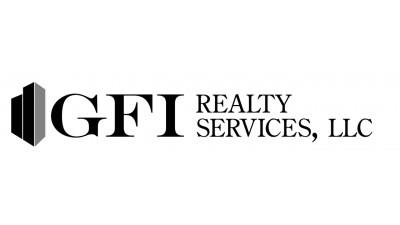As Tech Companies Look Beyond Manhattan, The Outer Boroughs Grow Up

For the first time ever, San Francisco has been ousted as the top home for tech companies. Now, that banner flies over New York City.
While tech giants like Apple and Google make their home in the city’s bustling heart of Manhattan, startups are setting their sights wider and, increasingly, making their homes in New York’s outer boroughs, and driving development in their wake.
“With tech startups, we’re seeing a trend of movement to Brooklyn and Queens,” GFI Realty Services research analyst Justin Fitzsimmons said. “With their arrival comes demand for new amenities in those neighborhoods, cuing investors to create more office space as well as mixed-use and residential projects. And that, in turn, spurs the arrival of more tech companies.”
Fitzsimmons discusses the effects of tech startups on NYC real estate in GFI’s market report for Q1 2019, The Tech Effect. The report notes that, following Amazon’s recent HQ2 announcement and subsequent retraction, the CRE industry has been able to watch the ripple effect of a major tech company’s relocation unfolding in real time in the markets surrounding Long Island City.
Within a month of the HQ2 news last November, analysts saw interest spark and prices spike in Astoria, LIC and Sunnyside. This surge of attention included the $80M sale of a project in Long Island City by Greystone to Silverback, which stated that Amazon’s original announcement of an HQ2 in NYC was among its primary motivators in the acquisition, Fitzsimmons said.
“Although Amazon will not follow through on an HQ2 plan in Long Island City, the infrastructure these tech companies are looking for in a neighborhood is already percolating there, laying the groundwork for growth to follow even without Amazon’s follow-through,” Fitzsimmons said.
While the impacts of smaller companies on outer-borough neighborhoods may be smaller on an individual basis, GFI’s report posits that their cumulative impact has been a primary driver of real estate markets in Brooklyn and Queens well before Amazon almost came to town.
Industry City, a massive mixed-use development in renovated warehouses along the industrial Sunset Park waterfront, created more than 5,000 jobs in Brooklyn, and is home to Condé Nast, Car2Go, ClassPass and many others.
Fitzsimmons said that while the residential sector has yet to catch up, the neighborhood’s commuting infrastructure has undergone profound changes: Because of the new commuter traffic, Sunset Park is now a stop on the East River Ferry, and a streetcar, the Brooklyn Queens Connector, is under discussion. These transit amenities, on top of the retail and dining options at Industry City, make the neighborhood more accessible and more appealing to new tenants and developers alike.

Tech companies are a major factor — if not the cause — of this type of development, Fitzsimmons said. Investors and developers are increasingly pressured to accommodate the tech industry’s demand to live, work and play in the same neighborhood.
For example, Etsy, the publicly traded e-commerce platform, was launched out of a Brooklyn apartment in 2005 and has since brought about 800 employees to a 200K SF headquarters in Dumbo. The GFI report notes that Dumbo is now a neighborhood-scale tech incubator, linking the cause at least in part to the early arrival of tech startups.
Similarly, Vice Media sprung up on a stretch of abandoned warehouses in Williamsburg in 2001; now it is surrounded by world-class dining and residential skyrises. Kickstarter moved from its first office on the Lower East Side to Greenpoint in 2012 because 75% of its employees were Brooklyn residents. Since, Greenpoint has become a bustling neighborhood with its own ferry stop, and with new office developments in the pipeline.
“As a result, Brooklyn neighborhoods inadvertently started becoming a one-stop-shop; a model that only reinforced investors’ confidence in them,” the report says. “Build where the young companies are, where the employee pool resides, and concerns over absorption rates would grow smaller; replaced by concerns over how fast can we build, how fast can we buy, how fast can we get in.”
“Long Island City, Dumbo, Sunset Park — these neighborhoods are incubators not only for the growth of technology but also for the growth of investment real estate — commercial and residential,” Fitzsimmons said. “Although the real estate investment market is not producing 2015 numbers, we do believe it is turning a corner, and the job growth brought about through the tech sector is definitely one of those drivers.”
This feature was produced by Bisnow Branded Content in collaboration with GFI Realty Services. Bisnow news staff was not involved in the production of this content.

